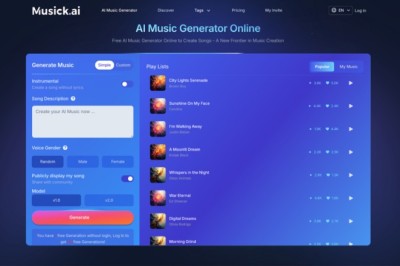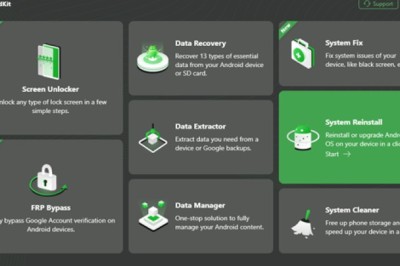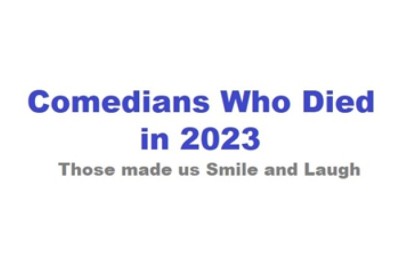views
In the ever-changing world of search engine optimization, 2025 represents a turning point that redefines the manner in which digital visibility continues to unfold. With user behavior influenced by artificial intelligence, algorithmic updates that change how rankings work, and relentless competition fueled by data, one question remains: Will SEO specialists stick to trying to optimize websites manually or use on-page SEO tools? Fundamentally, this debate raises an essential decision between craftsmanship and technological efficiency. While improvements from both are promised, the scale, consistency, and resilience of their outcomes are highly varied.
Optimizing By Hand: The Basics
Manual optimization is the traditional, hands-on way of SEO, where an expert analyzes page content, technical structure, user experience, and performance signals manually, without any automated help. It is mostly guided by experience, best practices, and personal insight. Professionals invest time reviewing each element of a web page, from meta tags and content structure to internal linking and media presentation.
This approach gives complete control. Any edit is deliberate, specific to the tone of a business, audience expectation, and strategic objectives. Manual methods are great for nuanced user intent interpretation, consistency of messaging across pages, and optimization customization for niche industries. However, the process is hugely time-consuming and error-prone: consistency and accuracy become more difficult to enforce as the website scales up or faces very frequent updates.
The Rise of Intelligent On-Page SEO Tools
By 2025, on-page SEO tools will have transformed from keyword checkers into intelligent systems powered by AI and machine learning. These platforms provide real-time diagnostics, semantic analysis, mobile responsiveness checks, Core Web Vitals monitoring, and predictive insights into ranking factors. Tools also integrate with content management systems and analytics platforms for instant data-backed recommendations.
These systems offer speed, scalability, and precision. For content teams managing hundreds or thousands of pages, tools help to find errors, track changes, and manage updates quickly and efficiently. They can mimic how the search engine spider would crawl on a site and highlight problems human eyes could not see. Furthermore, they adapt to algorithmic shifts, ensuring that optimization strategies remain relevant amid constant changes in ranking criteria.
Evaluating Performance in a 2025 Landscape
It all comes down to performance, which begs the question of which delivers better results. In today's data-driven world, key metrics include organic traffic growth, keyword rankings, click-through rates, and dwell time.
Manual optimization still has its place when personalization and creativity are key. In branding-oriented content, tone, storytelling, and originality drive engagement, and human finesse often surpasses algorithmic suggestions. But technical SEO, accessibility standards, and structural consistency-these are where tools offer more reliable improvements. Tools reduce human error, speed up the process, and give your marketing a direction backed by evidence.
Instead, most successful businesses today follow a hybrid workflow, whereby manual planning and refinement are followed by tool-aided execution and monitoring to maximize flexibility and accuracy.
Avoiding Common Pitfalls and Ensuring Sustainability
Manual optimization often faces an inability to scale. As websites grow bigger, it becomes frustratingly tedious to keep track of all optimization details. Teams often miss outdated tags, duplicate content, or broken links. These lapses can affect rankings and undermine user trust.
On-page SEO tools mitigate those pitfalls by executing automated audits. They alert users to potential errors, offer paths for corrections, and log changes for future reference. This level of oversight will be even more crucial going into 2025 as search engines increasingly place weight on technical health, page speed, and the accuracy of structured data.
Another advantage of tools is their sustainability: whereas manual methods require continuous expert involvement, which often comes at a high cost and depends on limited bandwidth, tools reduce that dependency by allowing consistent updates across large volumes of content with minimal manual input.
The Human Element and Strategic Adaptability
The tools, though sophisticated, cannot simulate human judgment. That is because tools would depend on data and predictive algorithms, leaving out emotional intelligence, sensitivity to brand voice, and creative intuition. In competitive content niches, where differentiation does matter, the manual crafting of page elements with a strategic narrative still proves invaluable.
SEO professionals continue to drive strategy, interpret data through brand-specific lenses, and find user patterns that fall outside algorithmic norms. In 2025, the role of humans in SEO has shifted-not to compete with the machines but to guide them. Experts now use tools not as replacements but as collaborators.
Final Thoughts: Balancing Precision with Purpose
Between manual optimization and on-page SEO tools, there is no absolute winner, only situational superiority. For tactical execution, tools dominate in speed, accuracy, and scalability. For strategic direction, creative refinement, and unique branding, manual methods still shine. The most successful teams in 2025 merge these strengths into a unified ecosystem, leveraging technology to amplify human insight.
The ones who resist the tools run the risk of falling behind in technical compliance and efficiency, while the ones relying on automation might just miss the most subtle opportunities for emotional engagement and audience loyalty. Basically, results derive not from choosing one route but from knowing how and when to use each. Dominate your niche without draining your wallet with the cheap SEO on-page tool: Seosets.com, where simplicity meets smart strategy.






















Comments
0 comment